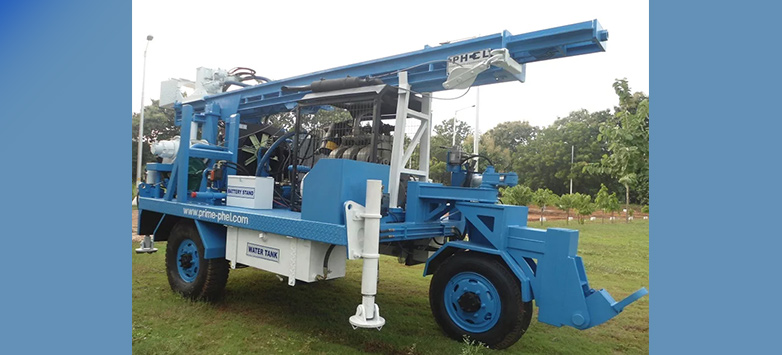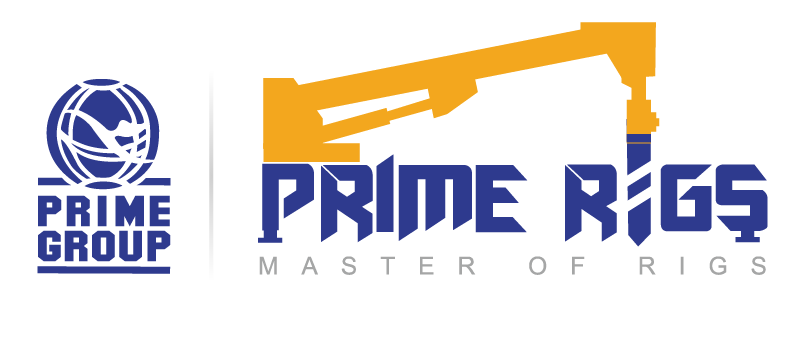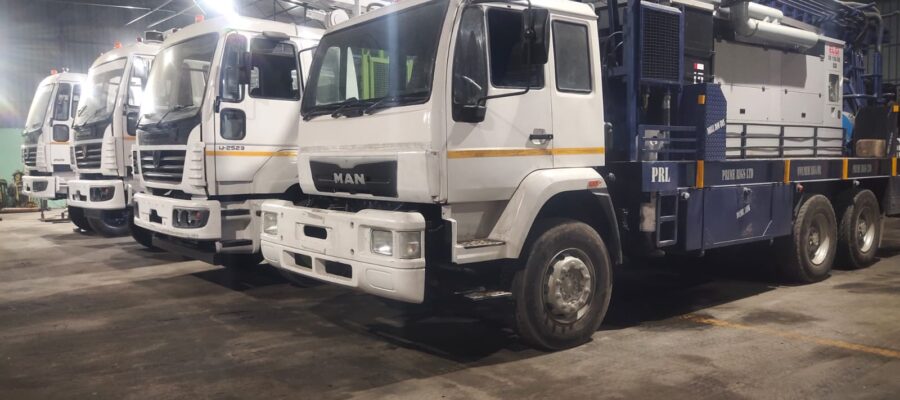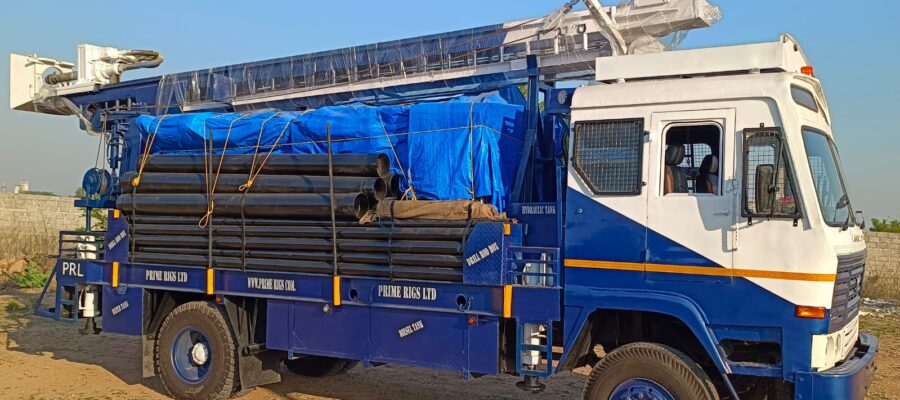
They know that in addition to employing the best people for the job, it is essential to have cutting-edge, durable, and dependable drilling equipment. This is why C&J only employs the most cutting-edge technology for their drilling projects. Their commitment to quality and the happiness of their customers has not wavered. Many trusted companies only employ well drilling equipment manufacturers because they are durable, productive, and low maintenance. The compact, all-wheel-drive equipment they use for water well drilling allows us to move quickly between job sites. Their Versa-Drill machines can handle any size of work, from industrial drilling to home improvement jobs, with ease and efficiency. This post will explain the fundamentals of what makes their water well drilling equipment unique in the Central Indiana area.
Construction & Mining Equipment (C&J) Drilling Rigs
They recommend a drill rig that is durable, user-friendly, and versatile in its application. As a result of this, they maintain a stockpile of drill rigs that are versatile enough to be used for a variety of tasks. Their first vehicle was a 1966 Failing 1250 little mud rotary rig. This vehicle served as their beginning point. Since then, everything has been turned upside down. A borehole is created via direct rotational drilling, which involves rotating a set of drill rods and a bit against the rock to create the hole.
Components For The Versa-Drill Geothermal And Water Well Rig
- Drivetrain And Motor –
Their rigs have a diesel engine producing 350 hp and an automatic transmission. This makes their rigs strong and adaptable, ready to take on a wide variety of tasks.
- The Science Of Fluid Pressure – Hydraulics
In these devices, pumps and motors are integrated together with a Lange pump drive box. A direct-drive hydraulic feed system is included in every one of their models. These configurations are safer and more efficient than the rest of the group because they do not need hazardous power transfer through the wire, chains, or sheaves and sprockets. This also means that there are no moving parts to adjust or break, eliminating the need for costly and time-consuming maintenance.
- Lifting Jacks –
When the drilling rig has been set up, the team will make sure it is level using the adjustable feet. If you want a perfectly straight well, levelling is a must. After the derrick has been lifted, the first drill rod is lowered into position.
- Bits Of Rod For Drilling-
The drill rods are set to go down into the ground 20 feet at a time. At first, they have to break through the overburden, which consists of whatever is on top of the bedrock and can be defined as soil, clay, rock, and so on. This step can be time-consuming because the depth of the overburden varies widely, from a few feet to several hundred feet. After every 20 feet, more water well drilling rig suppliers are placed in the hopes of reaching a usable aquifer. Most of the groundwater is accessed at depths within the bedrock.
Conclusion
For drilling purposes, they extend what is called a derrick, which is essentially a crane. When fully extended, the derrick’s height is around 40 feet, and it serves to support and manipulate the drill string. Drill rods are sent down the borehole by the derrick as required. Each of their rigs has a pullback capacity of between 25,000 and 40,000 pounds and a pulldown capacity of 22,100 pounds.
Recent Post
- Frequent Used: Heavy Construction Equipment and Instruments
- What Type of Water Drilling Should You Choose?
- How To Choose The Perfect Drilling Rig To Buy?
- Tips For Selecting the Right Drilling Rig According to Your Need
- Water Well Drilling: Numerous Advantages
- How To Find Affordable And Reliable Water Well Drilling Rigs For Sale?
- Everything You Need to Know About Water Construction Rigs
- Water Drilling Rigs: Know The Different Types
- Refurbished Borehole Drilling Machine: Is It Worth The Purchase?
- Safety for the Construction Industry: Why Does it Matter?
- Milling Or Drilling: Which Is The Right Process To Choose?
- Choosing A Construction Truck Rigs Supplier Keeping Perfection In Mind
- Factors That Can Help You Select The Best Water Well Drilling Rig
- What Makes Drilling Rigs Different From Milling Rigs?
- Water Well Drilling Rig: All You Need to Know About It
- Do’s and Don’ts of Choosing the Right Rigs
- Underground Drilling Rigs: Features That Make Them Unique And Most Recommended
- What are construction drilling rigs? Why do companies need them?
- How do drilling companies help you with core drilling exploration?
- Key Features and Benefits of Drilling Machines in the Construction Industry
- Exploring the Advantages of Portable Borewell Drilling Technology
- How to Choose the Right Drilling Rig for Your Needs
- Reasons to Invest in Absolute Guide for Rotary Drilling
- Selecting the Ideal Drilling Rig: Ensuring Safety, Efficiency and Cost-Effectiveness





